Venez découvrir notre école, nous vous accueillons toute l’année !
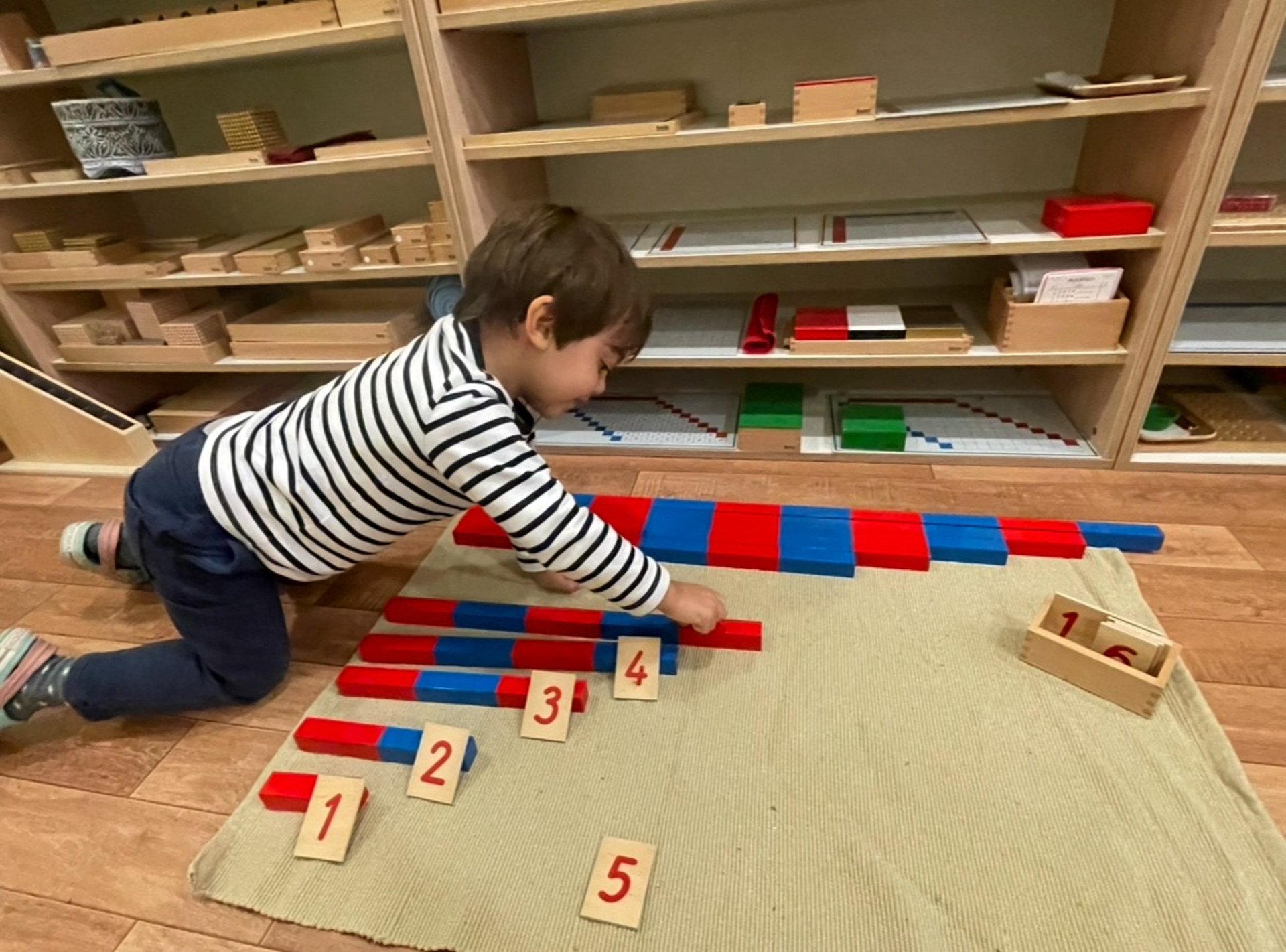
« Une manière de mesurer la pertinence d’un modèle éducatif est le niveau de bonheur d’un enfant. » Dr. Maria Montessori
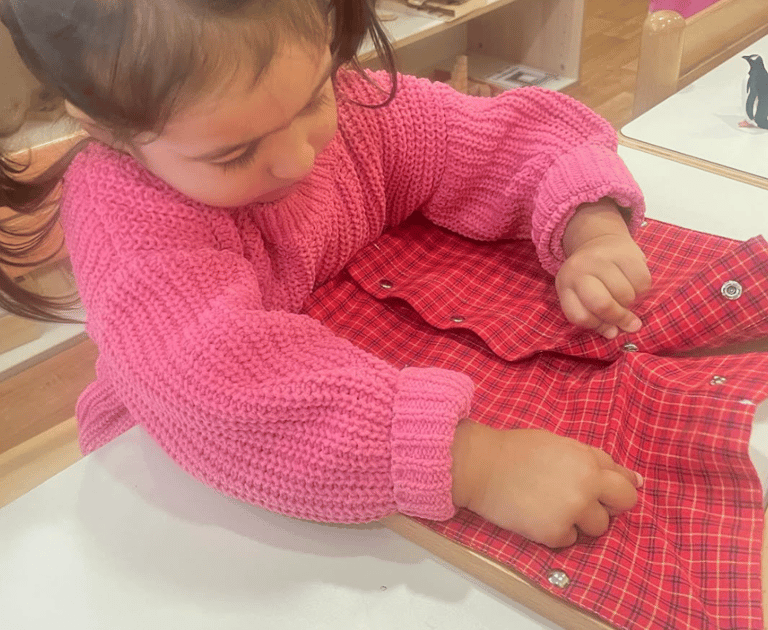

Un petit groupe de 2 à 6 ans
Notre Maison des Enfants accueille un petit groupe d’enfants âgés de 2 à 6 ans. Cet effectif réduit garantit un accompagnement personnalisé et une atmosphère chaleureuse où chacun trouve sa place.
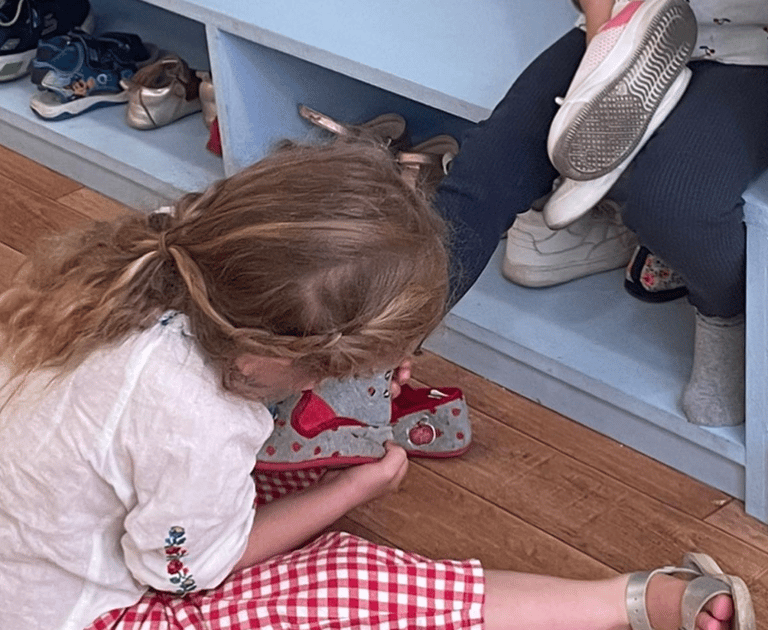

La richesse des âges mélangés
Les enfants grandissent ensemble dans un groupe d’âges variés. Les plus jeunes observent et apprennent des plus grands, qui développent leur confiance en partageant leurs acquis. Cette entraide naturelle favorise l’autonomie, la responsabilité et le respect de l’autre.
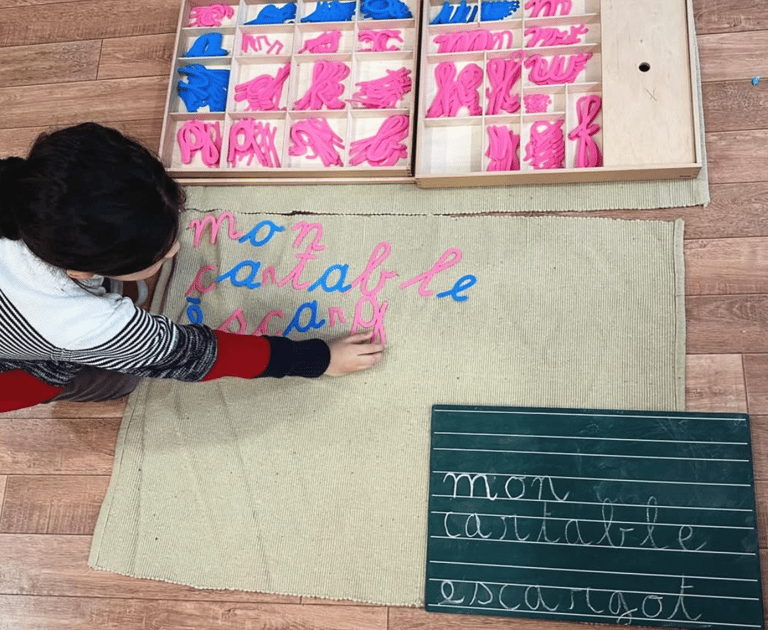

Un projet pédagogique rigoureux
Notre projet pédagogique, rigoureusement étudié, s’appuie sur l’authentique pédagogie Montessori. Il est porté par une équipe diplômée de l’Association Montessori Internationale (AMI), gage d’excellence et de fidélité à la vision de Maria Montessori. Chaque éducatrice accompagne avec expertise et bienveillance l’épanouissement des enfants.
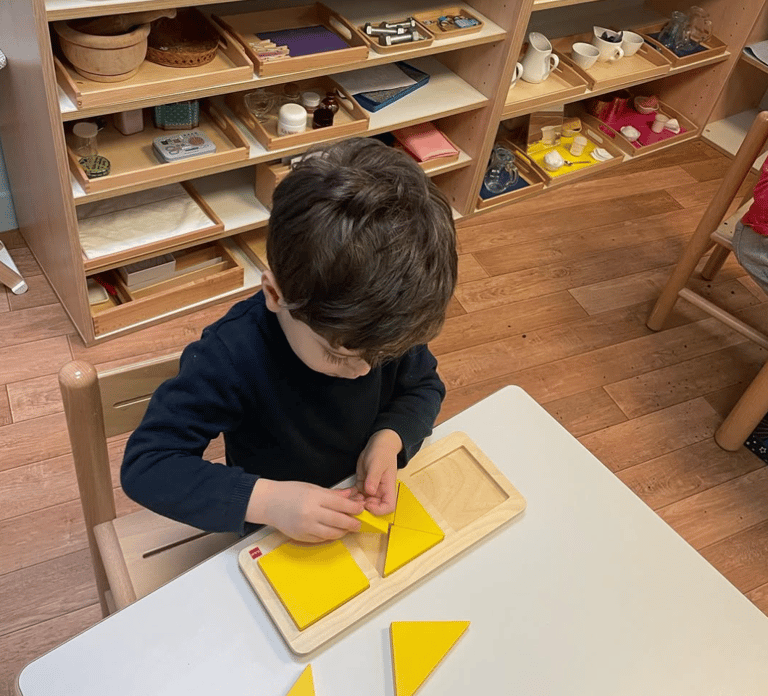

Un environnement pensé pour l’éveil
Nos classes sont soigneusement aménagées pour stimuler la curiosité et le plaisir d’apprendre. Organisées en aires de vie (pratique, sensorielle, langage, mathématiques), elles offrent un cadre structuré où l’enfant explore librement, manipule et comprend le monde à son rythme.
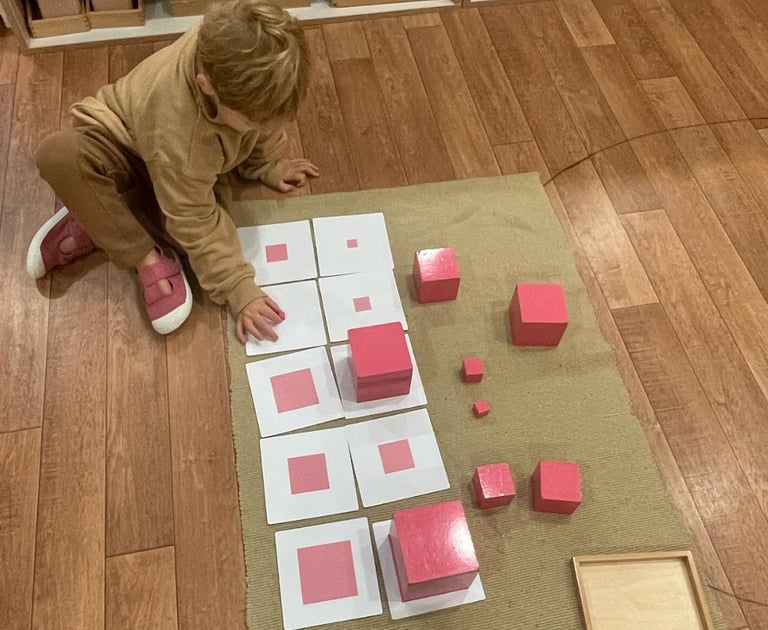

Apprendre dans un cadre serein
Un temps de travail ininterrompu de 2h30 à 3h permet aux enfants de développer leur concentration. Sans notes ni récompenses, ils apprennent par motivation intérieure et curiosité naturelle. La liberté de mouvement favorise l’épanouissement et le plaisir d’apprendre.
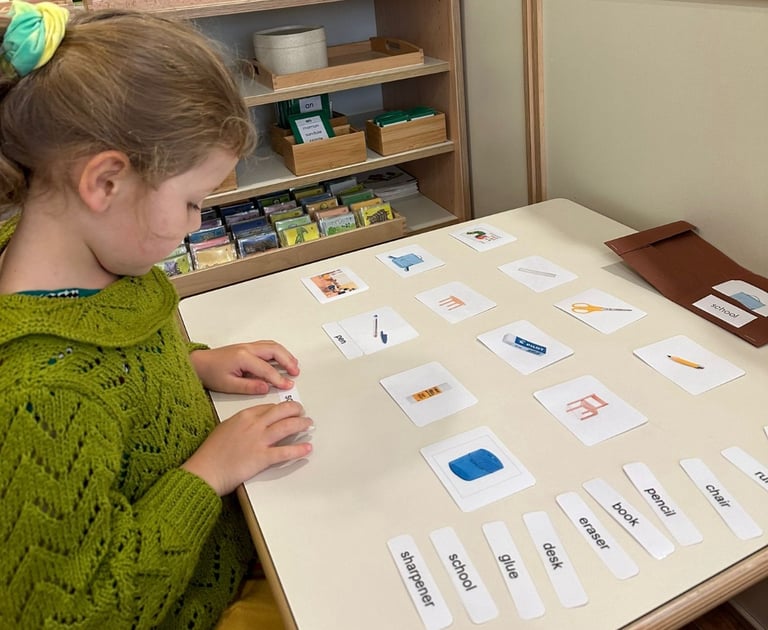

Le bilinguisme au quotidien
Dès 2 ans, les enfants évoluent toute la journée en français et en anglais. Encadrés par une éducatrice francophone et une anglophone, ils découvrent naturellement les deux langues. Le bilinguisme devient une immersion joyeuse, spontanée et confiante, ouvrant leur regard sur le monde.
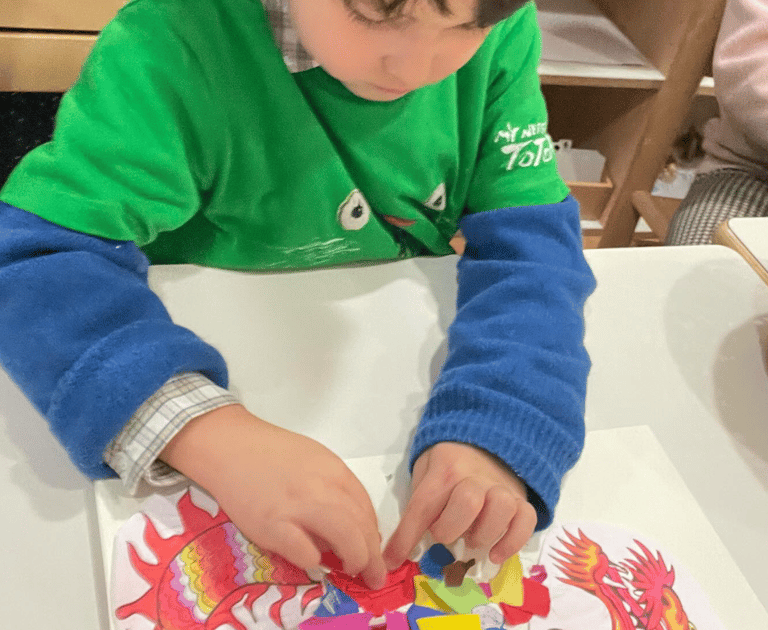

La créativité au cœur de l’école
La créativité s’exprime chaque jour à travers l’art, la musique, la danse ou le théâtre. Elle stimule l’imagination, la confiance en soi et la gestion des émotions. Les enfants ont un accès libre aux matériaux artistiques, leur permettant de créer selon leur inspiration.
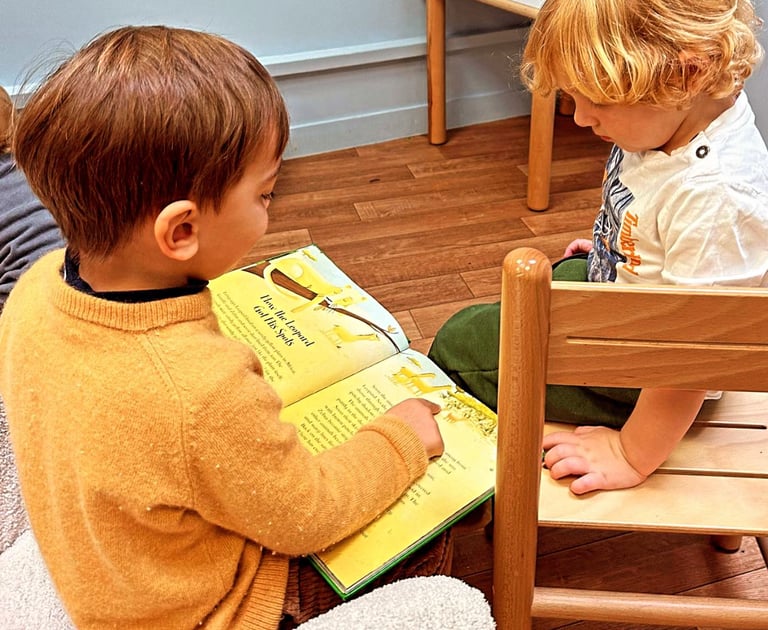

Le bonheur de lire
Les livres occupent une place centrale à Montessori Small World. Les enfants apprennent à lire tôt, grâce à une approche progressive, sensorielle et ludique. Chaque semaine, les éducatrices partagent des histoires choisies avec soin, et les coins bibliothèque accueillants invitent les enfants à explorer la lecture librement. La lecture devient plaisir, vocabulaire et partage.
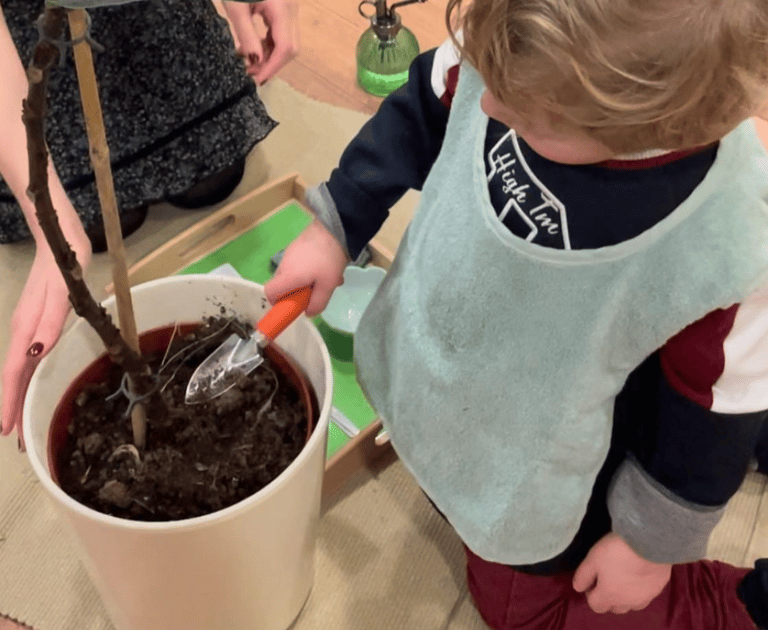

Le lien avec la nature
Les enfants prennent soin des plantes, observent la croissance du vivant et profitent chaque jour d’un temps en extérieur. Ces gestes simples éveillent l’émerveillement et construisent une relation respectueuse avec la nature.
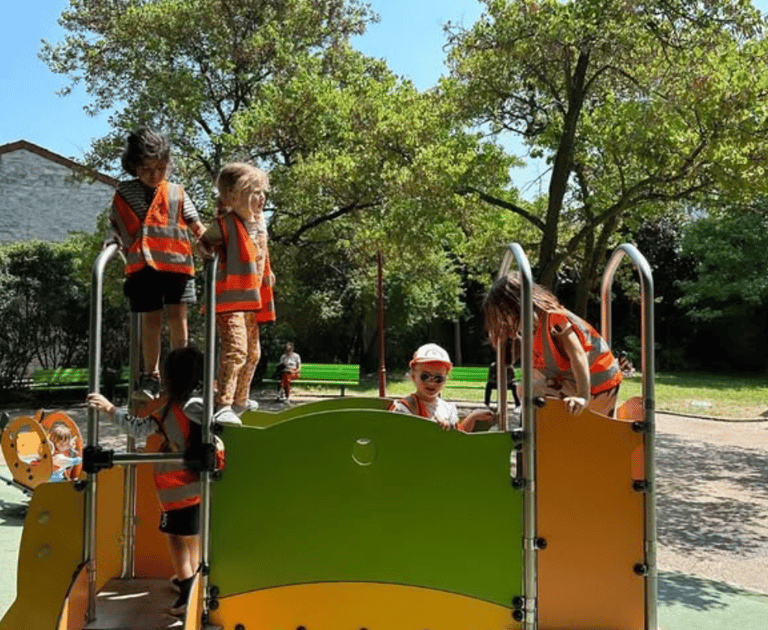

Une journée rythmée et équilibrée
Entre travail Montessori, ateliers bilingues, temps de repas, sieste et jeux en extérieur, la journée est structurée pour offrir équilibre et sérénité. Chaque enfant suit son rythme, apprend, se repose et s’épanouit pleinement.
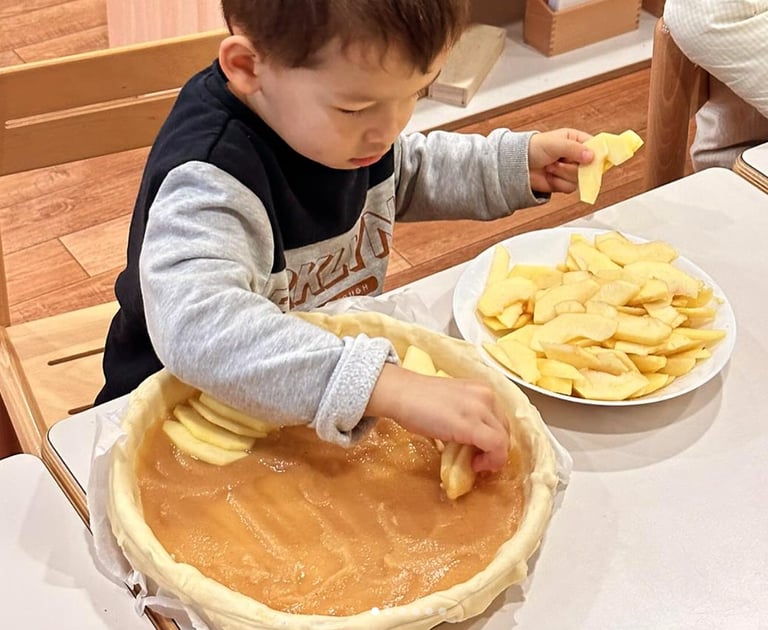

Une ambiance familiale et bienveillante
Notre école est avant tout un lieu de vie. Les repas partagés, la convivialité, les moments de repos et de jeux créent une atmosphère chaleureuse et sécurisante. Chaque enfant grandit dans la confiance, entouré d’une communauté attentive.
